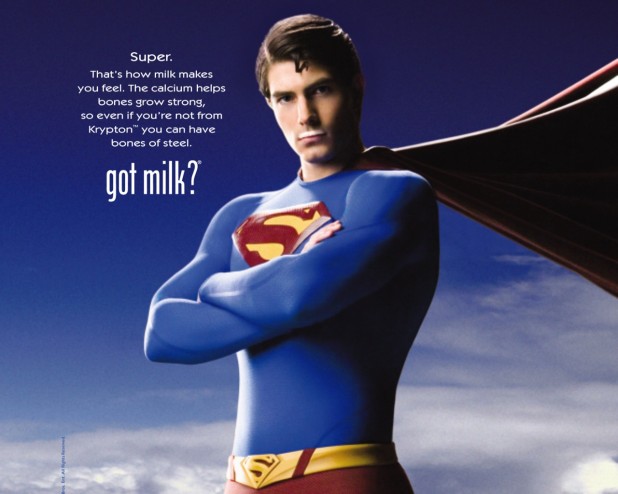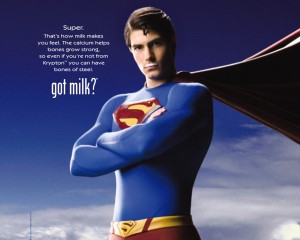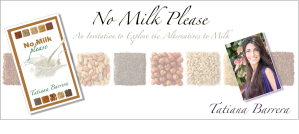Hi, my name is Tatiana Barrera, Holistic Health Coach and author of the book “No Milk, Please”. I love the fact that Katie invited me to share with you a little about why “no milk”. Believe me, talking about this is certainly not the best way to make friends at a party, but it sure something I feel needs to be done, to shine a light on the truth, and then let you decide for yourself…don’t we all deserve that power?
The core value of holistic health coaching is understanding that each of us is different and has different nutritional needs. Generalizations in nutrition are not only wrong, but can also be very dangerous to our health. And talking about generalizations…Which is one of the most aggressively marketed food products? Milk! Between the “Got Milk?”, the “Milk, it does a body good” and other related campaigns, we are bombarded with white mustaches and an overrated urge to consume dairy products in order to be healthy. But what is the real truth behind all this? What is the general public missing in this picture?
Inspired by these questions, my book No Milk, Please came to be. In it, I look at the situation from different angles and invite my readers to explore the alternatives to dairy. I begin with the history of human consumption of milk and conclude with actionable tips and recipes to live a dairy-free lifestyle. In a simple and easy to understand language I present powerful information, intended to help open your eyes to the truth behind the billboard, and empower you to make better choices for your own health.
So what is the big issue and why such an aggressive title? Even though I am not a radical person, I figured the title needed to shake the ground a little, as I was embarking in a difficult task: breaking life-long social paradigms. Milk is an ideal food for baby calves, but it is not so for humans, as most of us lack the natural ability to digest it. Let’s not forget we were made to drink human milk as babies, not other animal milks in our adulthood. And this is talking about raw milk with its structure unaltered. If we look at modern days milk, the situation becomes a lot more complicated. Pasteurization, homogenization, added hormones, antibiotics, etc, alter milk original nutritional profile and pose a whole new set of treats to our health when we consume it.
HERE’S THE THING: our body functions in a very primitive, animal like, manner. It digests and benefits from foods it understands, but when foods become so different from their natural state, the body has a real hard time knowing what to do with them, and that is when problems arrive. Think about it, you are dealing with something that you don’t know how to benefit from, but still need to “pass through”, what do you do? Use up your stored resources to deal with the problem in hand. That is exactly what the body does. Many times it needs to use up its mineral resources, including calcium, to help digest dairy products.
Milk’s advertising focuses on calcium, and its importance for bone health. However, clinical research has shown that dairy products do not contribute to bone health. Milk does contain calcium, but when we consume it, it is so hard on our digestive system that our body has to actually do what I was just mentioning; use up its mineral reserves, which are stored in the bones, to help digest it. So in the aftermath, the calcium balance ends up being lower instead of higher. Makes you really think twice about who is really benefiting from all the milk advertising, doesn’t it?
Have you ever asked yourself where elephants, gorillas and even adult cows get their calcium from in order to maintain strong bones? The answer is not a glass of milk from a different species, the answer is grass, and green leafy vegetables!
Several experts in the matter agree to say that calcium in vegetables has a higher absorption than calcium in milk. Dr. Fuhrman and Dr. Barnard, two of my favorite mentors in nutrition agree to say that calcium absorption in some green, leafy vegetables can be as high as 50%, and even higher in things like Brussels sprouts, while the absorption in milk is lower than 32 percent.
Amy Joy Lanou, assistant professor of health and wellness ant the university of North Carolina, and co-author of the book “Building bone vitality” says, after extensive research including over 1,200 studies, that dairy products not only don’t help in the prevention of osteoporosis, but actually contribute to increasing it.
Now, my point is not for you to panic, and certainly not for you to hate me. My point is to invite you to re-learn what you know, and look at milk differently. In my opinion, if we stop looking at milk as a healthy food, and start looking at it the way we look at soda or coffee, we will really be able to change our health. So it is not about never eating a dairy product again, it is about never again looking at them as a healthy food.
Check out my book, there is a lot of empowering information in it that I am sure will benefit you. And there is also an amazing compilation of dairy free recipes from chefs from around the world that you will love.
Love and health,
Tatiana Barrera
Related articles
- Dairy (stepstobeinghealthy.com)
- The Differences Between Grass-Fed Dairy Products vs. Factory Farming (greatinfographic.wordpress.com)



